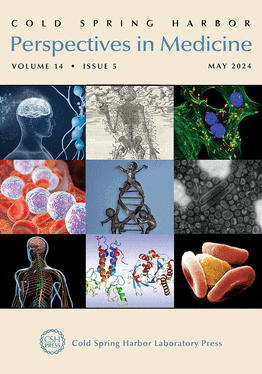Developmental Dysregulation of Childhood Cancer
IF 7.8
2区 医学
Q1 MEDICINE, RESEARCH & EXPERIMENTAL
引用次数: 0
Abstract
Most childhood cancers possess distinct clinicopathological profiles from those seen in adulthood, reflecting their divergent mechanisms of carcinogenesis. Rather than depending on the decades-long, stepwise accumulation of changes within a mature cell that defines adult carcinomas, many pediatric malignancies emerge rapidly as the consequence of random errors during development. These errors—whether they be genetic, epigenetic, or microenvironmental—characteristically block maturation, resulting in phenotypically primitive neoplasms. Only an event that falls within a narrow set of spatiotemporal parameters will forge a malignant clone; if it occurs too soon then the event might be lethal, or negatively selected against, while if it is too late or in an incorrectly primed precursor cell then the necessary intracellular conditions for transformation will not be met. The precise characterization of these changes, through the study of normal tissues and tumors from patients and model systems, will be essential if we are to develop new strategies to diagnose, treat, and perhaps even prevent childhood cancer.儿童癌症的发育失调
大多数儿童癌症的临床病理特征与成人癌症截然不同,这反映了它们不同的致癌机制。许多儿童恶性肿瘤并不像成人癌症那样依赖于成熟细胞内长达数十年、逐步积累的变化,而是由于发育过程中的随机错误而迅速出现。这些错误--无论是遗传、表观遗传还是微环境--通常会阻碍成熟,从而导致表型原始的肿瘤。只有发生在一组狭窄的时空参数范围内的事件才会形成恶性克隆;如果发生得太早,那么该事件可能是致命的,或者会被逆向选择;而如果发生得太晚,或者发生在一个不正确的前体细胞中,那么转化所需的细胞内条件就不会得到满足。如果我们要开发诊断、治疗甚至预防儿童癌症的新策略,那么通过研究患者和模型系统的正常组织和肿瘤来精确描述这些变化将是至关重要的。
本文章由计算机程序翻译,如有差异,请以英文原文为准。
求助全文
约1分钟内获得全文
求助全文
来源期刊

Cold Spring Harbor perspectives in medicine
MEDICINE, RESEARCH & EXPERIMENTAL-
CiteScore
14.30
自引率
1.90%
发文量
44
审稿时长
4-8 weeks
期刊介绍:
Cold Spring Harbor Perspectives in Medicine is a monthly online publication comprising reviews on different aspects of a variety of diseases, covering everything from the molecular and cellular bases of disease to translational medicine and new therapeutic strategies.
Cold Spring Harbor Perspectives in Medicine is thus unmatched in its depth of coverage and represents an essential source where readers can find informed surveys and critical discussion of advances in molecular medicine.
 求助内容:
求助内容: 应助结果提醒方式:
应助结果提醒方式:


